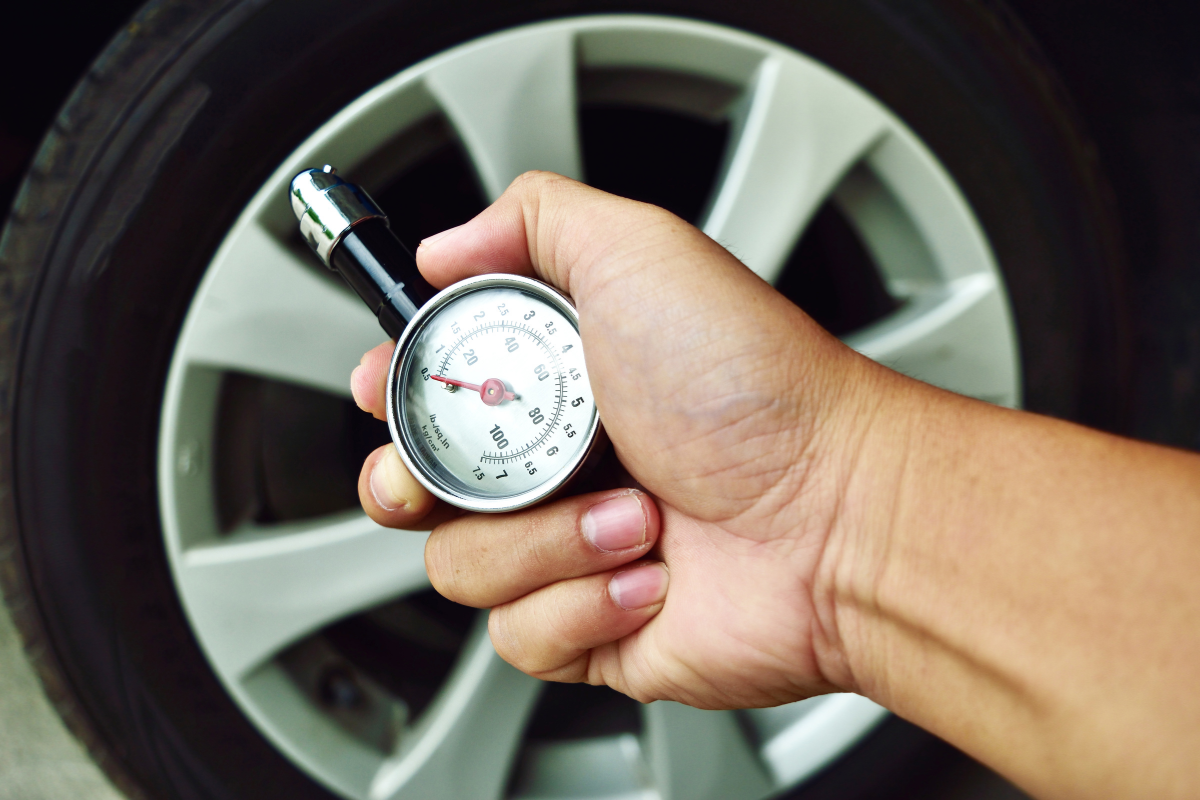Pressure meters are also known as pressure gauges and they are important tools for measuring the pressure of gasses or liquids in different applications. They play a very important role in different applications ensuring the safety efficiency and proper functioning of your systems across multiple industries like automotive industrial processes and of course home Appliances in this guide you can learn everything about different types of pressure meters.
Understanding Pressure Meters
Types of Pressure Meters:
Pressure meters are available in different types. The digital pressure meters use electronic sensors to measure the pressure and also display the readings on a digital screen. They are known for their accuracy, ease of use and of course ability to store and transmit data electronically. The digital pressure meters often include additional features including alarms, data logging and of course connectivity options. The analog gorges use a mechanical system basically including a diaphragm or capsule to measure the pressure. The pressure causes mechanical deformation in the elements which is then translated into a needle movement on your dial. You need to know the analog gauges are valued for their simplicity, reliability and of course ease of reading this. The manometers measure the pressure by balancing the fluid column against the pressure to be measured. They are especially useful for low pressure measurements and of course differential pressure readings.
Applications:
the pressure meters are completely indispensable in different fields because of their ability to provide major pressure information. In the automotive industry the pressure meters are used to measure the tire pressure, oil pressure and of course fuel pressure ensuring vehicle safety and performance. In industrial processes they are important for monitoring and controlling pressure in pipelines, boilers and compressors besides reactors to ensure safety and efficient operations. Household appliances like water heaters, boilers and gas ovens use the pressure meters to maintain proper pressure levels ensuring safe and effective operation.
Benefits of Using a Pressure Meter
Accurate Measurements:
One of the best parts about using a pressure meter is its ability to provide perfect pressure readings. Accurate pressure measurements are important for maintaining safety and efficiency in different systems, for example incorrect tire pressure and vehicles can lead to poor fuel efficiency, increased tire wear and even accidents. Similarly accurate pressure readings in industrial processes are important for preventing equipment and also ensuring product quality.
Diagnostic Tool:
You must know that the pressure meters work like valuable diagnostic tools helping you identify and troubleshoot issues in systems. By detecting pressure irregularities you can pinpoint problems like leaks, blockages or malfunctioning components. For example, a sudden drop in pressure in the HVAC system might indicate a refrigerant leak while abnormal pressure readings in a boiler can also signal a potential safety hazard.
Versatility:
Pressure meters are versatile instruments used across a huge range of industries and applications. Their ability to measure pressure in gasses and liquids makes them indispensable for your maintenance troubleshooting and quality control tasks. Whether in automotive maintenance industrial processes or home appliance repair the pressure meters provide critical insights that help you maintain optimum system performance
Step-by-Step Guide to Using a Pressure Meter
Step 1: Preparation
you need to firstly choose the type of pressure meter that aligns with your specific requirements. For example use a digital pressure measure for high precision requirements or an analog code for general monitoring. Furthermore you can also verify whether the pressure meter is calibrated and in good working condition. Calibration can ensure that your meter provides accurate readings. You can check the calibration certificate and ensure it is updated well in time.
Step 2: Connecting the Meter
You need to locate the point in the system where pressure measurement is required. This could be a valve, a pipe or a designated pressure port. You can just connect the pressure meter to the system using the appropriate fittings and adapters. Just ensure a secure connection to prevent leaks. You can follow the manufacturer’s instructions for proper installation. Once connected you have to check for any leaks around in the connection points even small leaks can impact the accuracy of your readings.
Step 3: Taking Measurements
If you are using a digital pressure meter, turn it on and allow it to stabilize. You need to know that analog gauges are ready for use immediately after connection. You need to observe the pressure reading displayed on the meter. Digital meters provide a numerical value while analog gauges show the pressure via an honor dial. You need to document the pressure reading along with the date and time for future reference. Accurate record keeping is important for tracking the pressure trends and of course diagnosing issues.
Step 4: Analyzing Readings
You need to compare the measured pressure against the system specifications or known acceptable changes. The comparison helps you identify any deviations or abnormalities. You must know that the pressure readings that are too high or too low might indicate potential issues. For example low pressure in the refrigeration system could suggest a refrigerant leak while high pressure in a pipeline might indicate a blockage.
Factors Affecting Pressure Meter Prices
Type and Features:
Type of pressure meter and the feature significantly influence the price of full digital meters with advanced features like data logging wireless connectivity and high precision sensors generally cost more as compared to the basic analog gauges. Some features like backlit displays multiple measurement units and strong construction also add on to the cost.
Brand and Quality:
you must know that the higher brands often command higher prices because of their reputation for accuracy, durability and reliability. The established brands usually offer better warranties and customer support contributing towards the overall expenses.
Application-Specific Meters:
specialized pressure meters designed for unique applications or environments might have a unique price range. For example meters used in hazardous or extreme environments need special features including explosion proof housing or high temperature resistance which can increase the expense to a great extent
Price Range Overview
Entry-Level Pressure Meters:
the basic models are suitable for occasional use fall into the entry level category. The meters basically offer fundamental features without any advanced options. The prices for entry level pressure meters range anywhere between $20 to $50 making them affordable for you if you’re a hobbyist or do you need anything for light duty applications .
Mid-Range Pressure Meters:
the midrange modules offer more features and better accuracy making them suitable for regular use in professional settings. They might include digital displays data logging and better durability furniture prices for mid range are likely to be anywhere between $50.00 to $200
High-End Pressure Meters:
the premium models often come with advanced features like high precision sensors, robust construction and multiple connectivity options for this job the meters are designed for demanding applications and environments. The prices for high end pressure meters can range anywhere between $200.00 to $1000. It all depends on the features and specifications you want.
Tips for Choosing a Pressure Meter
Consider Application Needs:
You need to select A pressure meter that aligns with your specific requirements of your industry or task. You can consider factors like the pressure range type of fluid or gas and environmental conditions where the meter will be used.
Budget Considerations:
It is very important for you to balance between features accuracy and price to get the best value for money. The higher end models offer more features and precision but might be unnecessary for basic applications. You need to understand your needs and budget accordingly.
Read Reviews:
It is really important for you to research customer reviews and ratings to understand the reliability and performance of the pressure meter. The reviews can provide you insights into the real world performance, durability and of course ease of use.
So above all you need to know that pressure meters are invaluable tools for measuring fluid and of course gas pressure in various applications. The ability to provide accurate measurements, diagnose system issues and of course ensure safety and efficiency makes them essential in many industries. by understanding the different types of pressure meters, their benefits and how to use them properly you can effectively maintain and even troubleshoot systems ensuring optimum performance.



